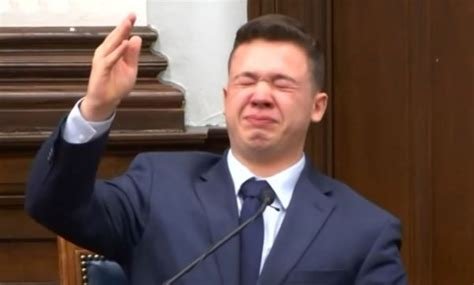I am a Black Man and I don't hate Kyle Rittenhouse.
As a black man, it deeply troubles me that some individuals fail to denounce Kyle Rittenhouse and his actions. The outcome of his trial left many of us profoundly disappointed, as we had hoped for a conviction that would hold him accountable for his deeds. However, we must transcend our emotions and examine the facts objectively, seeking the truth that lies beneath the surface.
The argument that Rittenhouse possessed the right to openly carry a rifle during the protests in Kenosha raises significant concerns. While certain laws may grant citizens the privilege of openly bearing arms under specific circumstances, we must question the wisdom and responsibility of a young individual like Rittenhouse choosing to bring a weapon into an already volatile environment. His decision demonstrated a grave lack of judgment and a disregard for the potential consequences that could unfold.
In scrutinizing this case, it becomes imperative to acknowledge that Rittenhouse willingly thrust himself into harm's way. While he did face attacks, we cannot ignore the fact that he could have entirely avoided the perilous situation by refraining from inserting himself into the protest while armed. The choice to resort to lethal force should be met with scrutiny, considering the alternative options that were available, such as retreating or seeking assistance from law enforcement.
One must also recognize that the argument of self-defense conveniently overlooks the role Rittenhouse's armed presence played in escalating the situation. While we lament the loss of life, suggesting that he could have aimed for non-lethal areas oversimplifies the complexity of self-defense scenarios. It is essential to delve deeper into the broader implications of Rittenhouse's actions and explore alternative outcomes that might have spared lives.
Drawing hypothetical parallels between Rittenhouse's case and a person of color being attacked by a group of white individuals is misguided and dismissive of the deep-rooted systemic racism and historical context that underlie the experiences of marginalized communities. Instead of utilizing such comparisons to defend or justify actions that perpetuate harm, our focus should lie in addressing the underlying issues of inequality and working diligently towards a more just society.
Referring to Rittenhouse as a "White Supremacist Murderer" may appear strong, yet it is not solely based on media portrayal. It finds its roots in the evidence presented during the trial and the circumstances surrounding his actions. Holding Rittenhouse accountable for his role in tragic events does not entail succumbing to propaganda or fear-mongering but rather seeking justice and ensuring the safety of our communities.
Witnessing someone from a marginalized community disregard the systemic injustices faced by people of color is disheartening. Our fight should be against racism and inequality rather than defending actions that perpetuate division and harm.
The closing statements, intended to connect personal experiences with the defense of Rittenhouse, require clarity and a compelling argument. Our freedoms should never serve as a justification for violence or protection of individuals who take the law into their own hands. True freedom encompasses responsibility and accountability.
In conclusion, the unequivocal denunciation of Kyle Rittenhouse and his actions is of utmost importance. Defending his actions undermines the progress we strive to achieve as a society and perpetuates harmful narratives. Together, we must work towards building a more just and equitable future for all, addressing the underlying issues of systemic racism that obstruct our path to true equality.
In addition to denouncing Kyle Rittenhouse and his actions, it is imperative that we acknowledge the reality and call things what they truly are. We cannot hope to create an equitable future for all unless we actively address the deep-rooted issues of systemic racism that continue to hinder our progress. By confronting these challenges head-on, we can pave the way for a society where justice, equality, and opportunity are truly accessible to everyone, regardless of race or background. Through our collective efforts, we can build a brighter and more inclusive future for generations to come.


